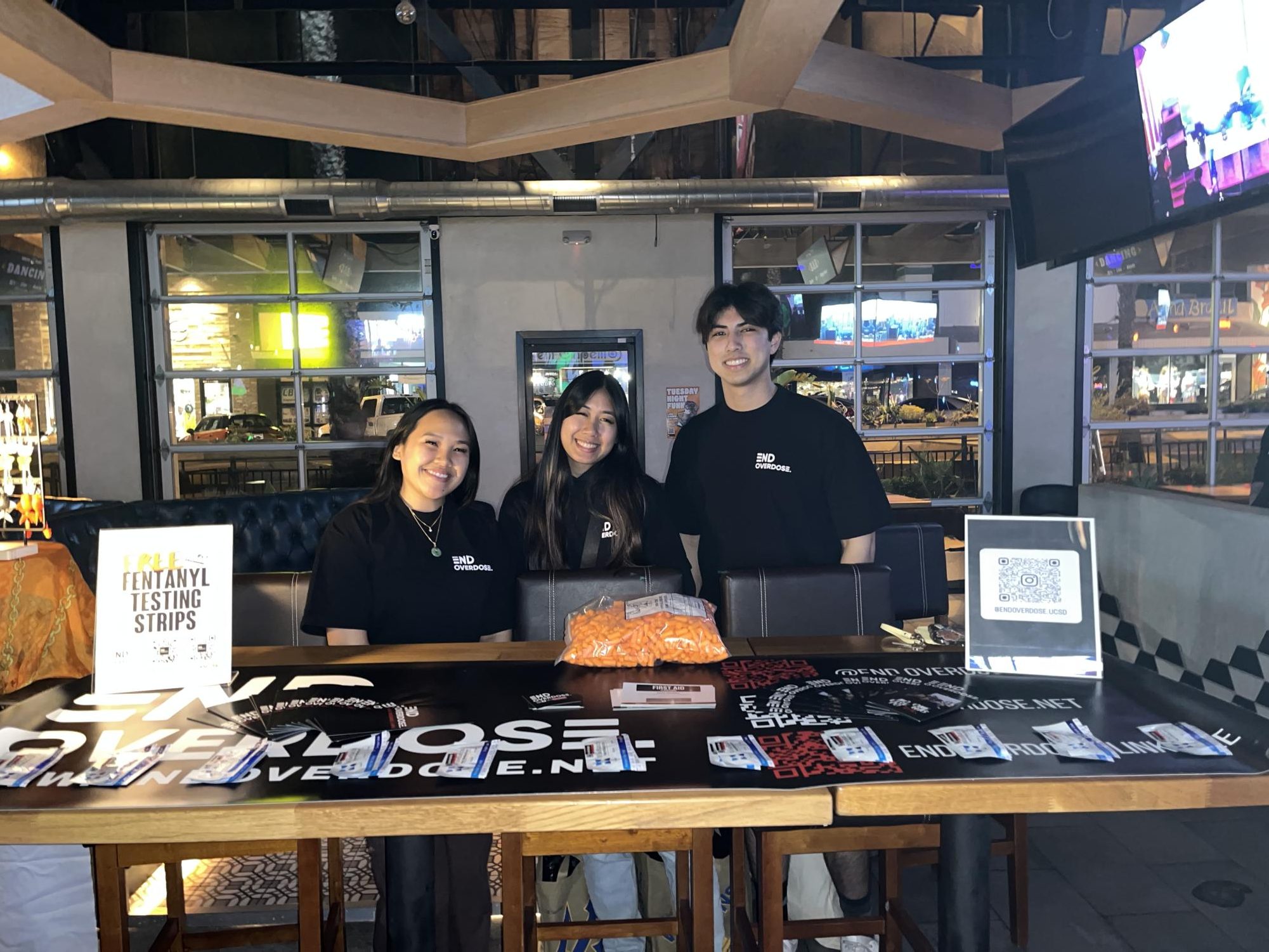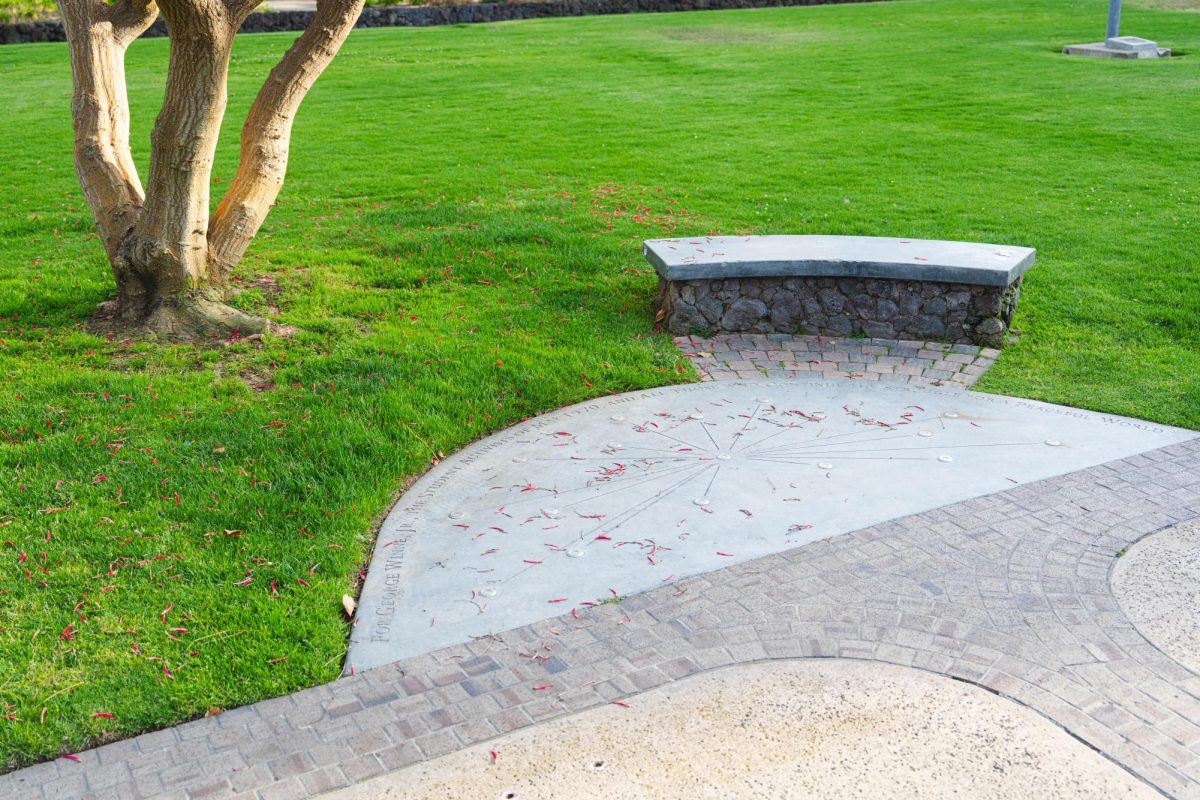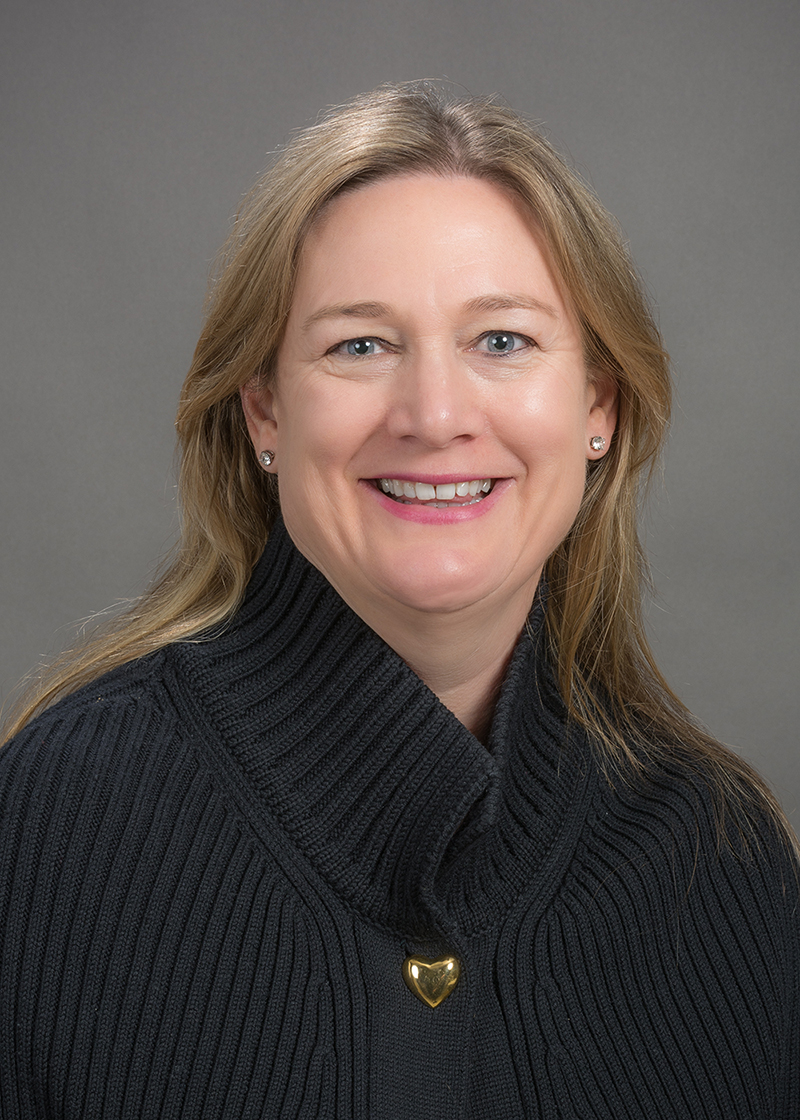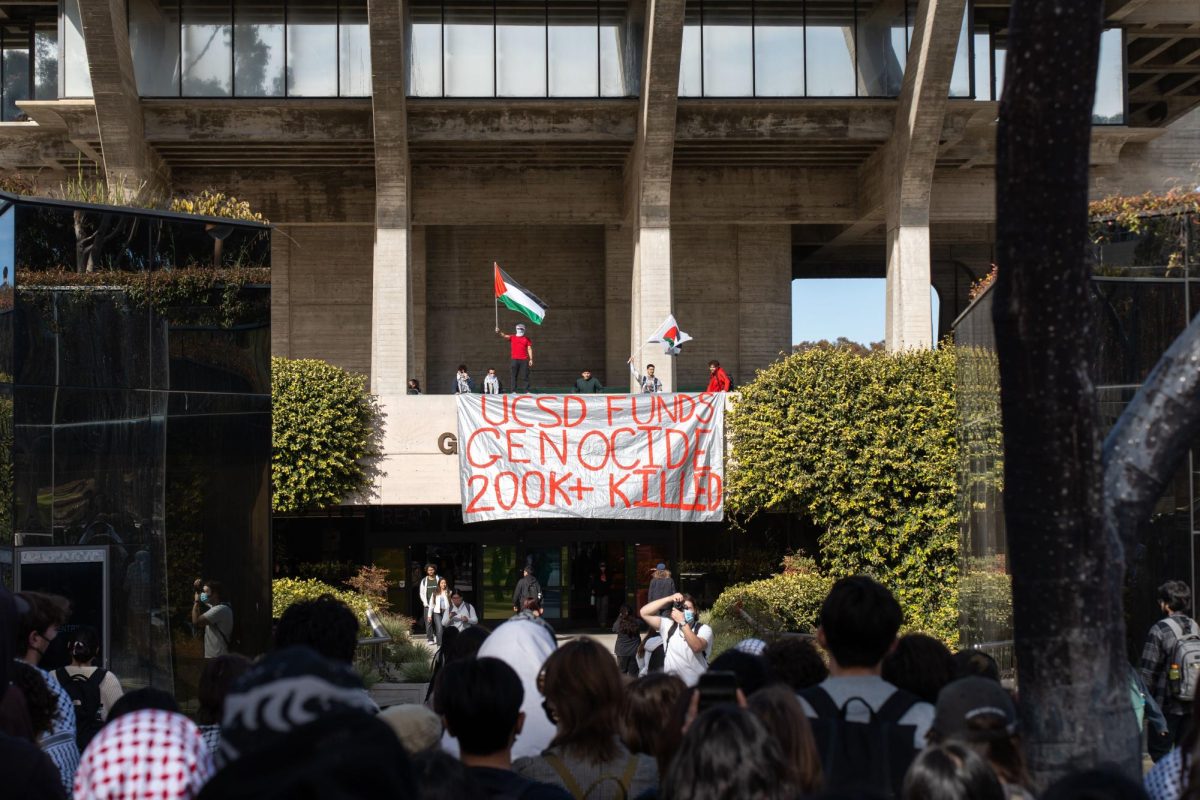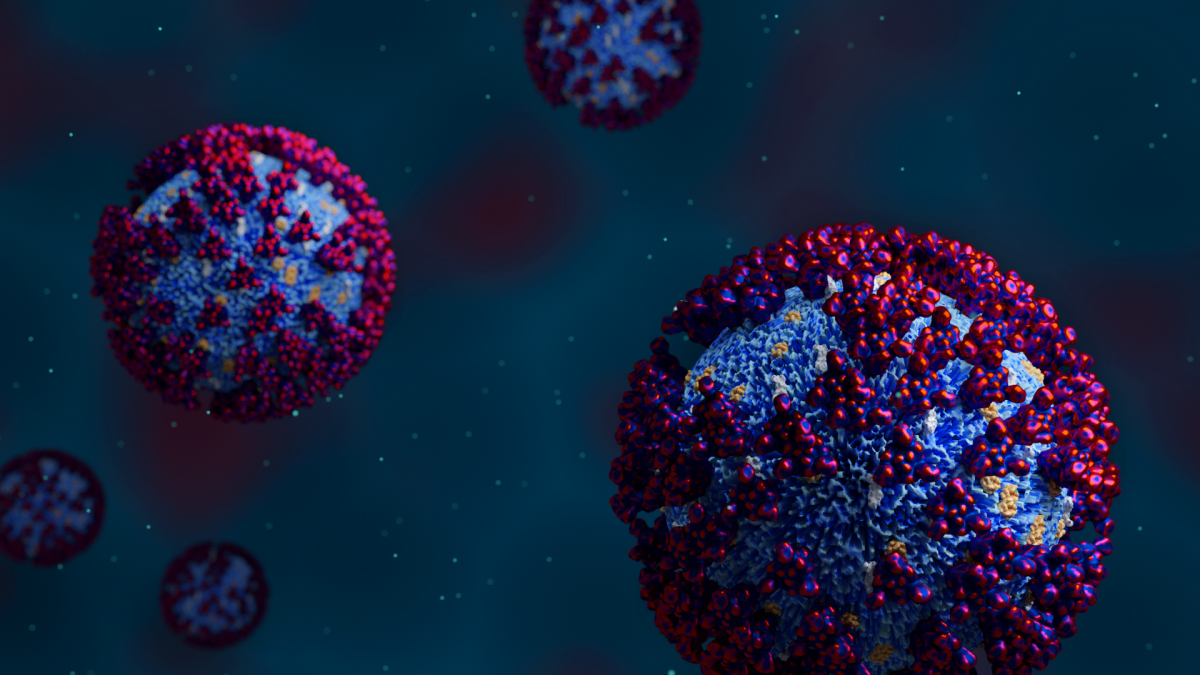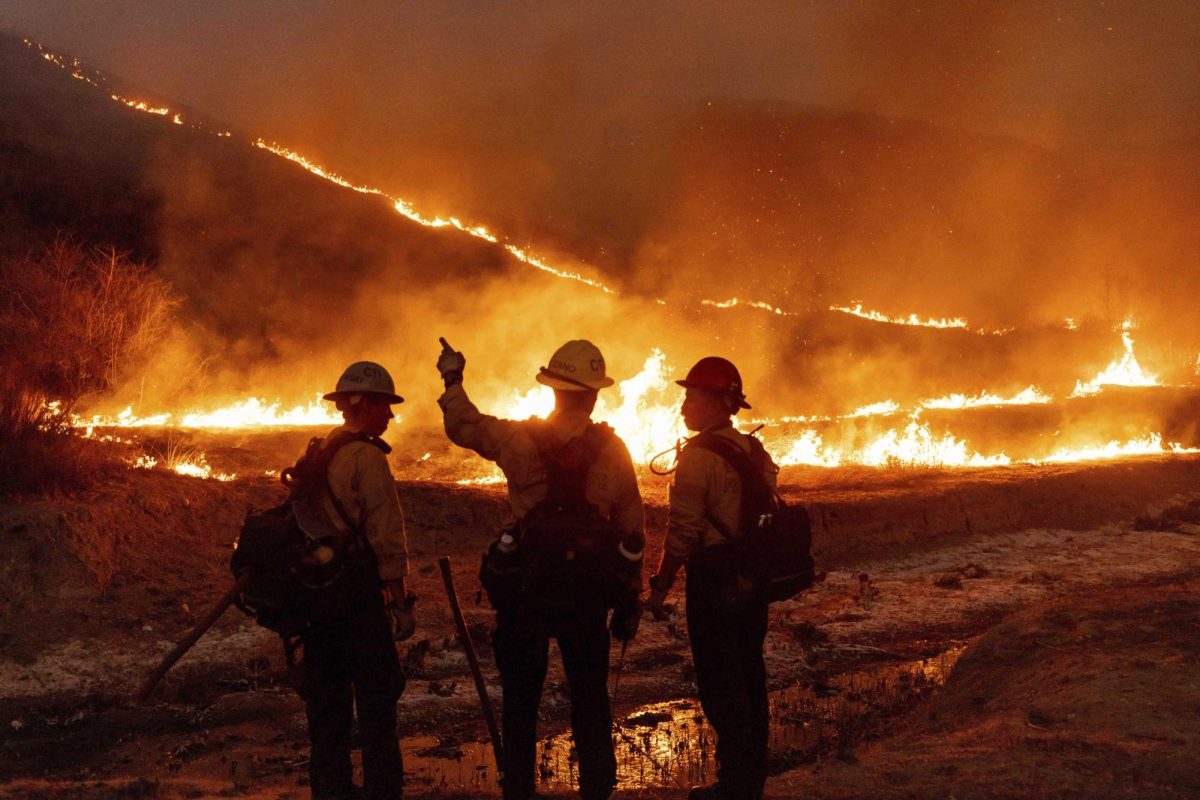When one thinks of a graduate school summer practicum project, the first things that come to mind are likely lab work or professional internships — in other words, when Nina Weisbrod decided to throw a rave for her summer practicum, it was not only ambitious, but extremely unconventional.
Weisbrod, a second-year master’s student in public health at UC San Diego, is the planner and organizer behind the upcoming bass music show at Break Point PB in Pacific Beach on Jan. 27. This is an entirely donation-based and nonprofit show with 100% of proceeds going toward End Overdose, a nonprofit organization dedicated to drug overdose prevention.
“I’ve wanted to do something like this for a really long time,” Weisbrod said. “I’m extremely passionate about harm reduction, and I love End Overdose’s mission.” The show will be headlined by Las Vegas-based bass artist Hekler and include sets from the rising bass music duo Blurrd Vzn and the artists bd hbt, BLAOW!, PKR, ROSES Grimoire, Avalon, and Shortcvke.
The show will be hosted by Project Seismic, a bass music collective located in San Diego that puts on multiple shows per month. While it has been known to host various large ticketed events, Project Seismic is also dedicated to promoting a sense of community within San Diego’s bass music scene, putting on at least one free show per month. Weisbrod and Project Seismic have worked tirelessly alongside End Overdose to ensure that this show will be entirely nonprofit, as everyone involved is volunteering their time and resources in order to support End Overdose’s life-saving work. End Overdose is based in Los Angeles and was founded in 2018 with the goal of ending drug-related overdoses — a leading cause of death for people in the U.S. aged 18-45. The nonprofit organization has also partnered with the event production company Insomniac to ensure that they are at the forefront of harm reduction at major EDM festivals and shows across North America.
Prior to starting this project, Weisbrod had the idea of planning a fundraiser show for over a year and had already been involved in Project Seismic for some time. Though she is now the operations manager for the collective, her initial involvement originated out of a simple passion for music. She quickly befriended the team and started promoting for them.
“I found Project Seismic and I started coming to all of their shows … and it just happened naturally,” Weisbrod explained. “A lot of the work I do there is more internal — managing the team, acting as HR, I do a lot of administrative PR … I try to just keep things running smoothly during the shows and keep us organized.”
Through Project Seismic, Weisbrod has integrated her experience with harm reduction and public health into her work in the music industry. At Project Seismic’s events, she ensures that fentanyl test strips are available, and she can be seen leading harm reduction teams.
Although this event has primarily been an independent project, Weisbrod emphasized that End Overdose has been a huge support in getting it off the ground. The first step in planning the event was to meet with End Overdose to see if it was even something she could officially do with them. Much of the project consisted of getting actions approved by them, and as a result, their collaboration can be seen publicly on a wide scale. For example, Project Seismic has collaborated with End Overdose on Instagram to promote the show, reaching their audience of nearly 100,000 followers.
Of course, another initial challenge was getting this project approved by the university. Before she could start planning, Weisbrod had the challenge of arguing that this show would represent the skills she’ll be using for the rest of her public health career.
“The requirement … was learning how to do budgeting and resource management in the context of a public health fundraiser,” she said. “I was so thankful that [UCSD] was open-minded and understanding that this would qualify.”
But possibly the most challenging part of this process was getting artists on board. The process of booking artists for a large-scale show like this one typically consists of signing contracts, communicating through booking agents, and writing up offer sheets — all things that take up even more time and resources.
“I broke all of the rules,” Weisbrod said, laughing. “I literally DM’ed artists on Instagram … But despite that, we still managed to get a really impressive lineup that’s completely based on donation.”
In addition to individual artists, Project Seismic has collaborated with other bass collectives to make this show possible. Friends of Project Seismic such as Pirate Pandas, Electric Syndicate, and San Diego Unified Bass District have provided support by helping with both production and promotion just to ensure that the show could be entirely donation-based and nonprofit.
It takes a village to put together an event like this; a major aim of the show is to unite and empower the wider community in San Diego. Every part of the show, from talent to production to even technical work, has been donated by the Project Seismic team and its surrounding community. More than just on a professional level, Project Seismic is also relying on the UCSD and bass music communities to come together to help them end overdose, especially as most of the show’s promotion is occurring through social media and word of mouth.
“A big part of our mission is giving back to the community and trying to create that sense of community,” Weisbrod said. “We’re not promoters; we’re a collective. Our goal isn’t to just make as much money as possible and not care about the people who are part of the group or coming to our shows. We want to truly build a family.”
A specific aim of the fundraiser is to combat fentanyl overdose by increasing access to and awareness of fentanyl test strips. Illegally manufactured fentanyl, a tasteless and odorless opioid over 50 times stronger than heroin, has increasingly been found in the drug supply over the past decade, especially in the United States. This has made it the primary focus of End Overdose’s efforts, as fentanyl overdose deaths continue to increase among both adults and children even when they are taking drugs of completely different strengths and categories.
While many other countries have had regular drug checking at festivals for decades, the U.S. still doesn’t have that level of access to these concrete ways of saving lives. In many states in the U.S., fentanyl test strips are illegal due to outdated drug laws which deem them drug paraphernalia. These test strips allow people to test their substances prior to consumption to ensure that they don’t contain fentanyl, potentially saving lives.
“Especially within the scene, you see a lot of people impacted by this,” Weisbrod said. “I’ve personally seen numerous people around me pass away over the years, and I think at this point, the opioid epidemic is so major that if you ask a random person, the odds of them not knowing someone who has died of an opioid overdose are very low.”
Through her work in overdose prevention, she hopes to keep these safe spaces actually safe from this increasing threat. Among both the general public and policymakers, the opioid epidemic has become an issue of dangerously low priority, due to both the stigma against drug use and the fact that it’s a relatively invisible issue to most people.
“It’s becoming so common,” Weisbrod said. “A huge motivator is that, unlike other really dangerous public health issues like cancer, diabetes, COVID-19 … we don’t really see as much pushback on helping those people as we do with substance use and overdose.”
In the future, Weisbrod hopes to continue her work in the field of mental health and substance use response, especially in the context of the music scene.
“I think right now, the opioid epidemic is one of the biggest public health crises of our lifetime,” she said. “I definitely think it’s important for us to remember that all of it is connected. So, along with being in an opioid epidemic, we are in a mental health epidemic … My biggest takeaway is that we need to stop victim blaming and putting the blame on individuals when it’s an issue that’s plaguing not only the U.S., but the entire world. And we need to look at how people’s basic needs are not being met — like food, shelter, clean water, et cetera — how that plays a huge role in this.”
The interconnectedness of these issues have also helped her to gain a more open-minded approach; for Weisbrod, as long as she’s ensuring that people’s basic health and well-being needs are met, she’s sure that her future work will aid in combating the current opioid and mental health crises in the U.S..
“The only requirement for someone to be in recovery … is for them to be alive,” Weisbrod said. “Everybody deserves a second chance.”The show is 21+, and it will take place from 8 p.m. to 2 a.m. The entrance fee will go towards End Overdose’s life-saving work, and the ticket link can be found on Instagram @projectseismic. Given the show’s talented lineup and the amount of care that’s been put into it, it’s one that you won’t want to miss.



